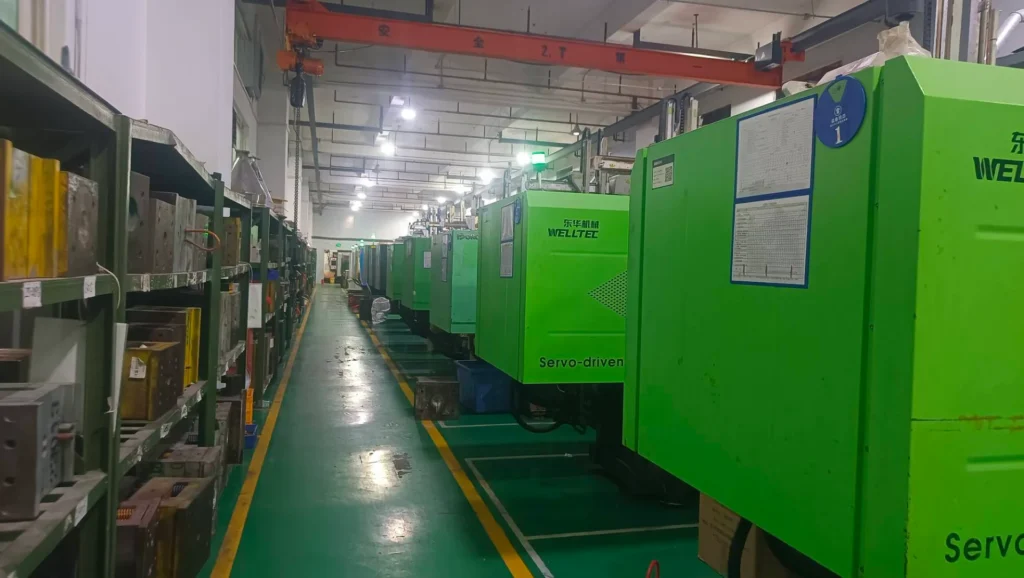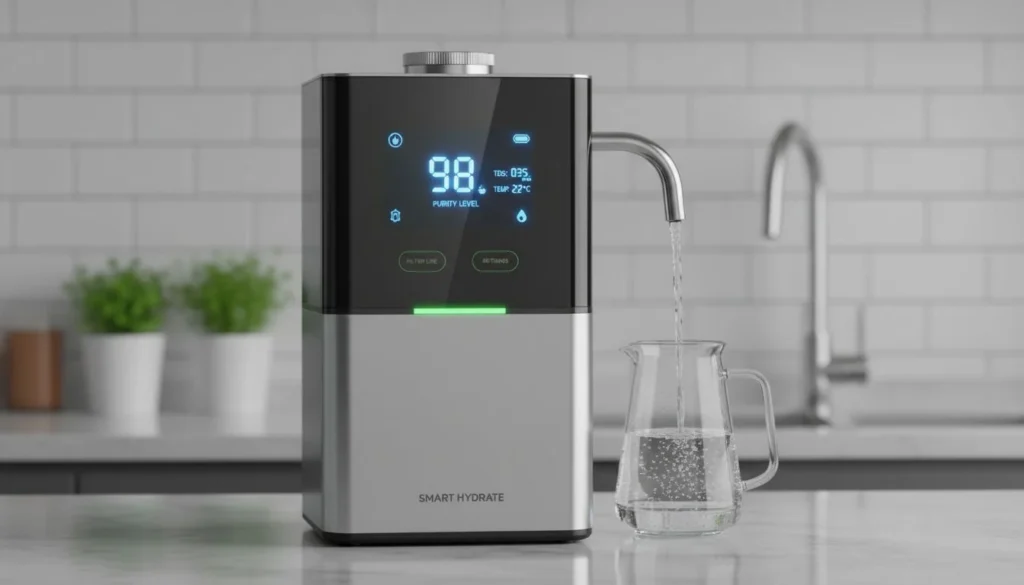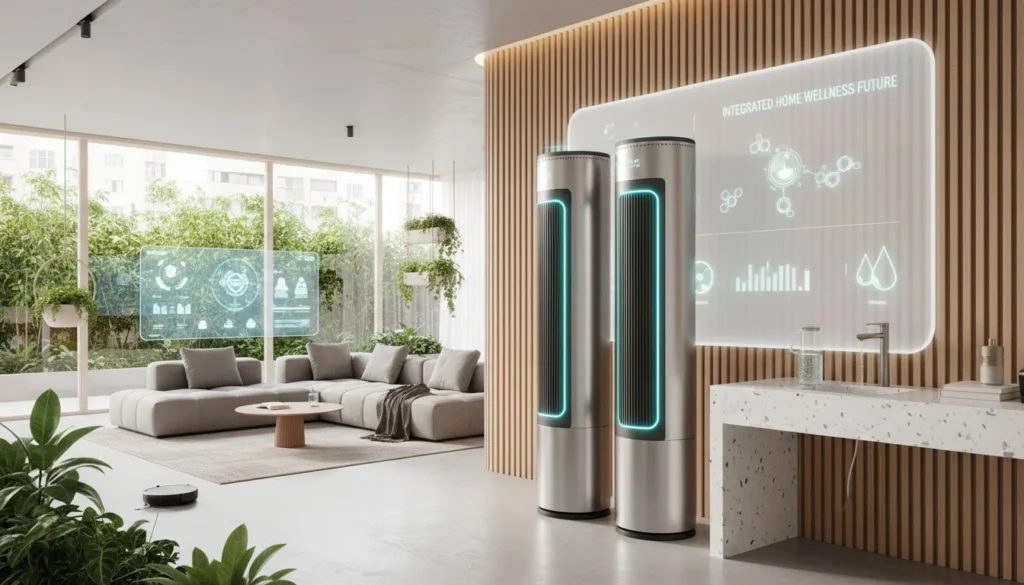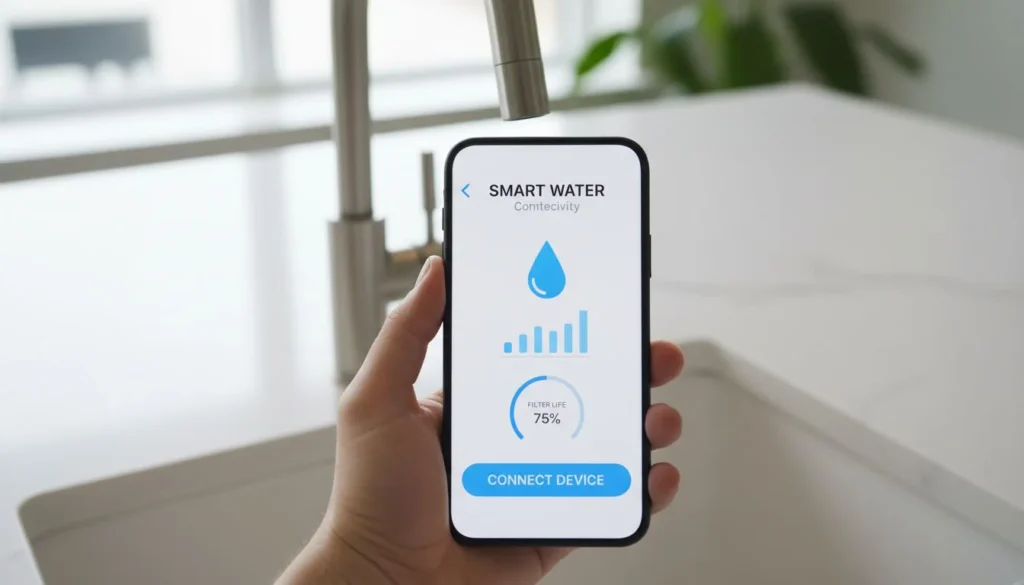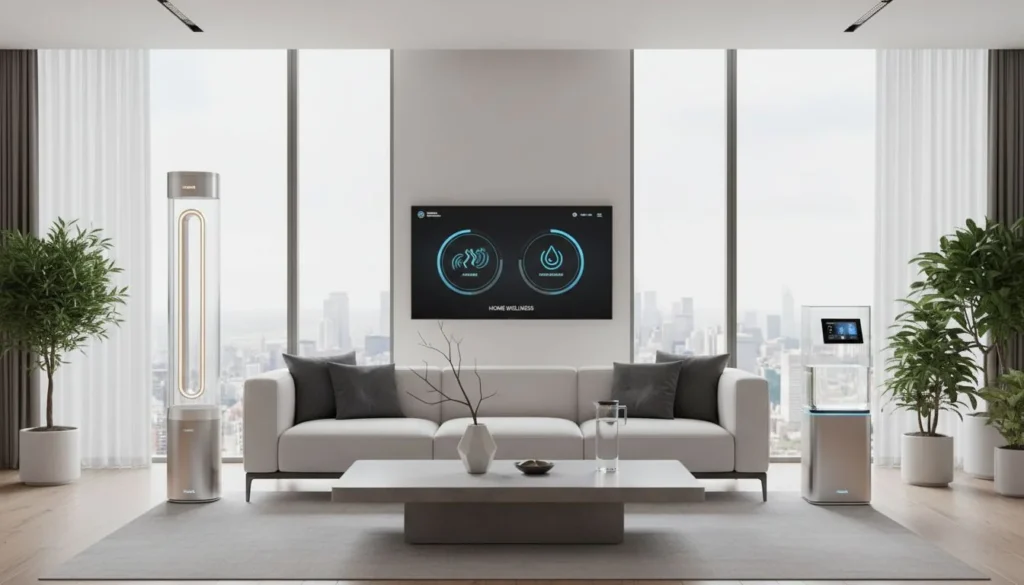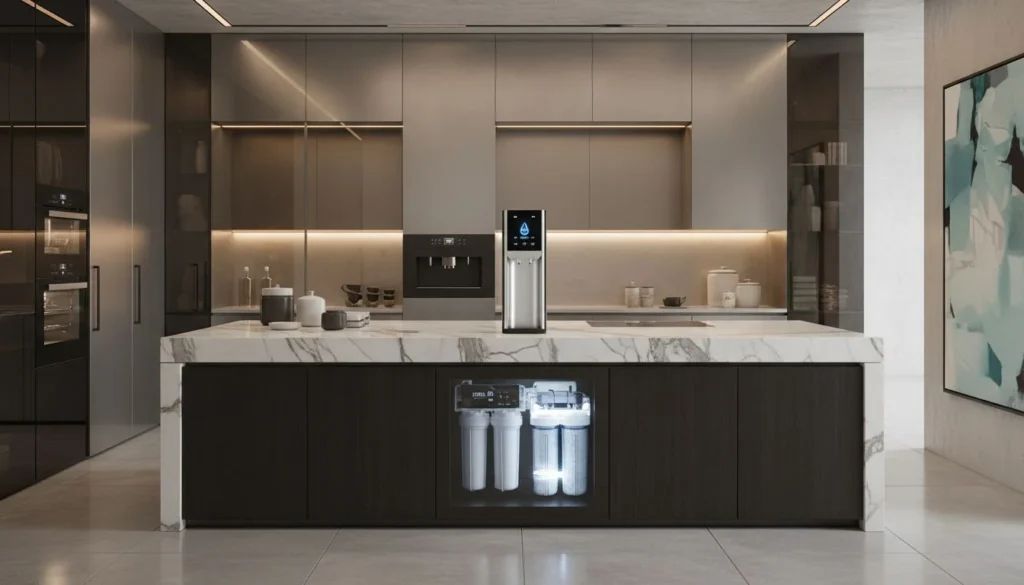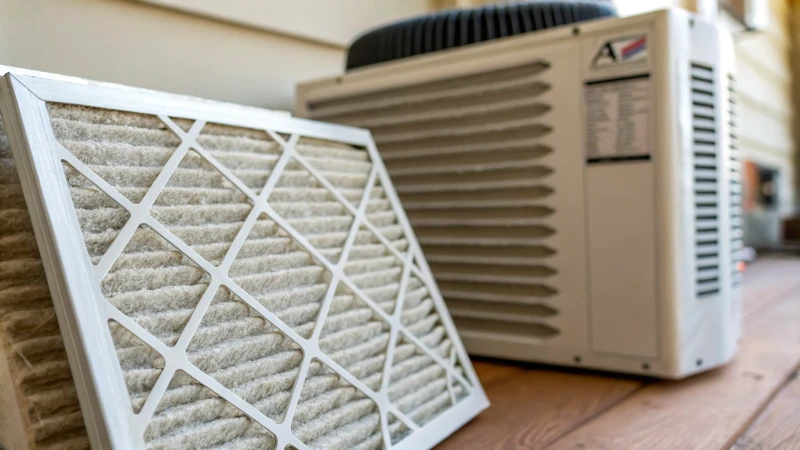
Imagine breathing in air so clean it feels like a fresh mountain breeze. Do HEPA filters turn our air conditioners into strong purifiers?
HEPA filters usually do not appear in air conditioners. Their high resistance puts stress on the system. Most air conditioners use lower-efficiency filters. These filters help keep airflow smooth. HEPA filters work well in special air purifiers. These devices manage resistance effectively.
When I first looked into air purification technology, HEPA filters fascinated me. Their powerful filtering ability surprised me. However, I quickly discovered they have a downside - resistance. This resistance is why air conditioners often use simpler filters. Simple filters help air conditioners keep cool air flowing smoothly. But don't worry; clever solutions exist. Integrated systems and new technologies like UV or bipolar ionization offer exciting ways to improve air quality. These methods avoid overworking your AC. It's very essential to find the right balance for your home. Let's explore these alternatives and see how to keep your indoor environment fresh and clean.
HEPA filters increase airflow resistance in AC units.True
HEPA filters' dense structure creates high resistance, straining AC systems.
Standard air conditioners use HEPA filters regularly.False
Standard ACs typically avoid HEPA filters due to their high airflow resistance.
Why Are HEPA Filters Challenging for Air Conditioners?
Do you ever ask yourself why your air conditioner has trouble with HEPA filters? It's similar to trying to squeeze a big beach ball through a small garden hose. Let's explore the reasons. These filters are fantastic for cleaning air. However, they are not the best fit for your cooling system.
HEPA filters create challenges for air conditioners. They have high resistance to airflow. This resistance probably reduces system efficiency. Energy use usually increases. Most standard AC units are not designed for such dense filtration.
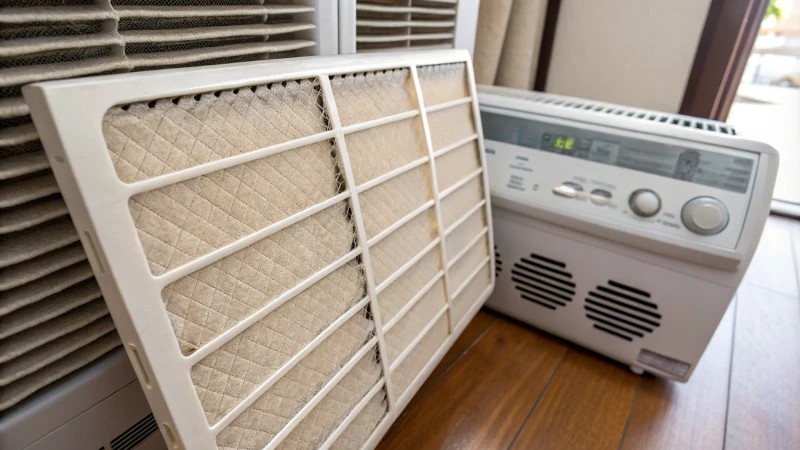
The Basics of HEPA Filters
HEPA filters work like when you vacuum and your room feels fresher. They capture 99.97% of very tiny particles, as small as 0.3 microns. These filters fight pollutants and allergens like heroes. They really clean the air.
| Feature | HEPA Filters |
|---|---|
| Particle Removal | 99.97% at 0.3 microns |
| Resistance | High |
| Common Use | Air purifiers |
Airflow Problems in Air Conditioners
Say you breathe through a thick scarf on a cold day. It seems cozy but tough, right? AC units experience this with HEPA filters. These filters create a lot of airflow resistance1. Most standard AC units struggle to handle this without using much more energy, which really affects your utility bills and system life.
Different Technologies
What are the other options? Manufacturers experiment with new ideas like UV light and bipolar ionization. These try to clean air without straining.
- UV Technology: Uses ultraviolet light to remove pollutants.
- Bipolar Ionization: Releases charged ions to capture and destroy contaminants.
These solutions keep energy use low while fighting unwanted particles in the air.
Efforts at Combining
Some companies attempt to merge HEPA filters with air conditioners by increasing fan power or mixing purification with cooling. In theory, this looks perfect, but in practice, it often turns costly and requires a lot of care and maintenance.
Table: Comparison of Solutions
| Solution | Pros | Cons |
|---|---|---|
| Enhanced Fan Power | Increased filtration capability | Higher energy consumption |
| Combined Systems | Comprehensive air quality | Complex installation and maintenance |
Searching for Solutions
Exploring these alternatives and dealing with challenges helps find the best air quality system2 for your home. It is important to keep your air fresh without exhausting your AC.
HEPA filters capture 99.97% of particles at 0.3 microns.True
HEPA filters are designed to capture at least 99.97% of particles that are 0.3 microns or larger.
Most AC units can easily handle HEPA filter resistance.False
HEPA filters introduce significant airflow resistance, which most AC units cannot handle efficiently.
What Alternative Filtration Technologies Can Be Used in Air Conditioners?
Have you ever felt your AC isn't cleaning the air enough? Let's explore some exciting filtration technologies that might really transform the situation.
Alternative filtration technologies for air conditioners include UV technology, ozone generators and bipolar ionization. These methods really remove pollutants effectively. They offer solutions for those who seek better air quality beyond traditional filters. Some people probably find improved breathing with these technologies. Enhanced air purity is very important.
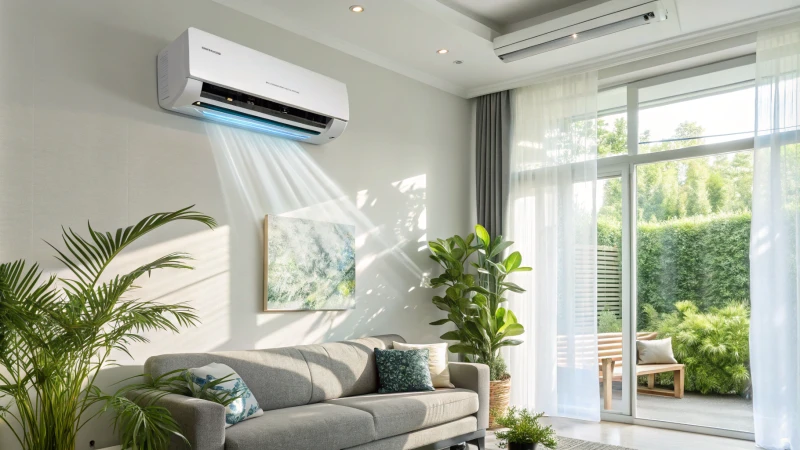
I remember the moment I discovered that standard air filters in AC units have limitations. It felt like realizing my favorite gadget was not as magical as I believed. This started my journey into finding different technologies for cleaner, fresher indoor air.
UV Technology
The first alternative I found was the UV filtration system. Ultraviolet light disrupts DNA and neutralizes harmful microorganisms. It's like having a tiny superhero inside your AC fighting germs.
Advantages:
- Kills germs effectively, which is very reassuring if you're constantly worried about invisible things in your home.
- Requires little maintenance, which means less trouble for people who aren't good at DIY tasks.
Disadvantages:
- Needs proper shielding to prevent UV exposure. This is really important if you have curious kids around.
Learn more about how UV filtration works3.
Ozone Generators
Next, I explored ozone generators. Initially, I was excited by their ability to remove odors and pathogens. But later, I found out they might not be suitable for everyone.
| Advantages | Disadvantages |
|---|---|
| Powerful deodorizer | Can irritate respiratory system |
| Effective on pathogens | Regulatory restrictions apply |
Discover why some choose ozone generators4 despite potential downsides.
Bipolar Ionization
I also investigated bipolar ionization. It releases charged ions that stick to pollutants, making removal easier. It's like having a mini air purifier in your AC.
Benefits:
- Reduces airborne particles efficiently. This is great for allergy sufferers like me.
- Consumes little energy. An advantage for environmentally conscious individuals.
Considerations:
- Produces tiny amounts of ozone. This may concern you if you’re sensitive.
Explore the latest in bipolar ionization5 for air conditioners.
Comparative Analysis
Comparing these technologies side by side was very helpful for me. Each technology has unique strengths. You need to find what suits your lifestyle best.
| Technology | Effectiveness | Cost | Maintenance |
|---|---|---|---|
| UV Technology | High | Moderate | Low |
| Ozone Generators | Moderate | High | Moderate |
| Bipolar Ionization | High | Low | Low |
From installation costs to health impacts, there is much to consider. For more understanding, look into filtration technology comparisons6.
UV technology effectively kills germs in air conditioners.True
UV-C light disrupts microorganisms' DNA, making them inactive.
Ozone generators are safe for all air conditioning uses.False
Ozone can irritate respiratory systems and has regulatory limits.
Can Air Conditioners Also Purify the Air Effectively?
Do you ever think about your air conditioner cleaning the air you breathe?
Some air conditioners really include air purification functions well. They use technologies like UV light, ionizers or activated carbon filters. These methods clean the air and keep you cool. However, different models and technologies may perform differently.
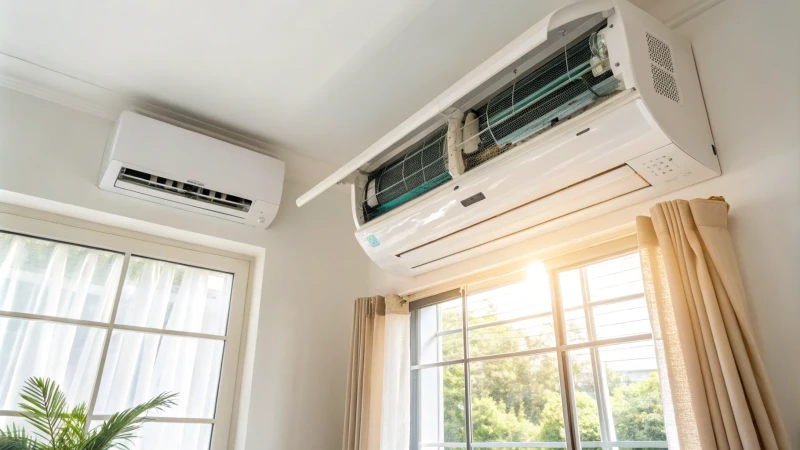
How Do Air Conditioners Clean the Air?
Technology can do multiple tasks these days. Some air conditioners cool and clean the air, like Swiss army knives of the cooling world. Imagine relaxing in your living room on a hot summer day. Feel the cool breeze as the air around you gets purified. These air conditioners often have technologies like UV light7 to kill bacteria and ionizers that pull in tiny particles from the air.
Activated carbon filters handle unwanted odors. These do not use HEPA filters due to airflow limits, but they have other methods. Indoor air quality can still improve even without HEPA filters.
Technologies Beyond Filters
Manufacturers create new methods for purification:
- UV Technology: Ultraviolet light kills microorganisms, similar to germs getting sunburned.
- Ionization: Tiny particles get charged and captured. It's almost magical!
- Activated Carbon Filters: These filters remove stubborn odors and volatile organic compounds.
These technologies work well even without HEPA filters.
| Technology | Function |
|---|---|
| UV Light | Destroys bacteria and viruses |
| Ionization | Captures smaller particles |
| Activated Carbon | Removes odors and VOCs |
Balancing Cooling with Purification
Air conditioners can do both cooling and purification, but it's not always easy. Focusing too much on one task may affect the other, leading to higher energy use or less efficiency.
However, innovation leads the way. Companies like Daikin8 try to balance cooling with purification. When choosing a system, think about your priorities—do you need more cooling power or cleaner air?
Considerations for Consumers
When buying an AC with purification features, look closely at the technologies they use. Check their effectiveness and energy efficiency; maintenance needs are also important. Identify which pollutants worry you the most.
Some people prefer a separate air purifier with a traditional AC for better coverage. Explore different air purification options9 to find what suits your lifestyle and needs best.
UV technology in ACs destroys microorganisms.True
UV light is used in ACs to kill bacteria and viruses effectively.
HEPA filters are common in air conditioners.False
HEPA filters are not used in ACs due to high resistance issues.
How Do Whole House Air Purification Systems Use HEPA Filters?
Do you ever think about how whole-house air purifiers keep your home very fresh and clean? The secret lies in the powerful HEPA filters. These filters work like magic.
Whole-house air purifiers use HEPA filters. These filters trap 99.97% of particles. They capture particles as small as 0.3 microns. Powerful fans move the air through the dense filters. These fans provide effective circulation. They keep indoor air really clean.
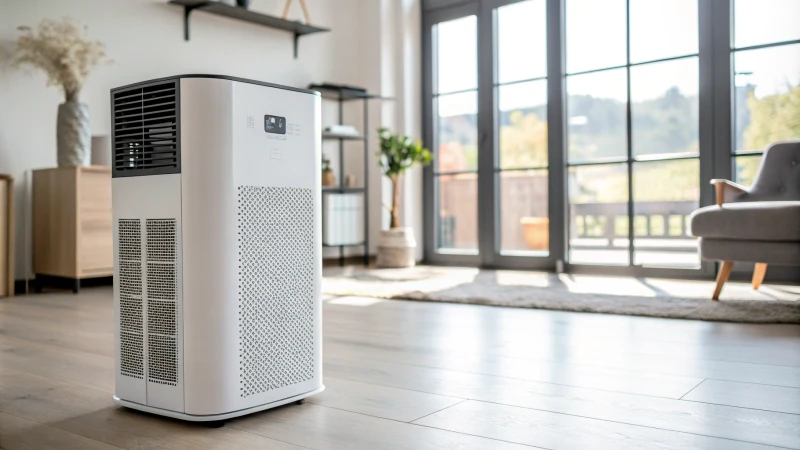
Understanding HEPA Filters in Whole-House Systems
When I first looked into whole-house air purification systems, I quickly noticed the importance of HEPA filters. They are like superheroes for air quality. These filters catch very tiny particles like dust, pollen, and pet hair. Breathing becomes much more comfortable during allergy season thanks to them. In these systems, HEPA filters connect to the HVAC system to clean air throughout the whole home.
Key Features of HEPA Filters
- Efficiency: These filters trap an impressive 99.97% of particles as tiny as 0.3 microns. That size is almost microscopic!
- Durability: HEPA filters last longer than normal ones. Their complex structure means fewer replacements, which saves me time and effort.
- Health Benefits: With my allergies, the big drop in allergens and pollutants really helps me.
| Feature | HEPA Filter |
|---|---|
| Efficiency | 99.97% for particles ≥ 0.3 μm |
| Common Use | Air purifiers, HVAC systems |
| Durability | High |
The Role of Powerful Fans
At first, I worried about airflow because HEPA filters are really dense. But the strong fans are like secret heroes. They help move air well through the thick filter and keep my home’s air fresh and clean.
Why Powerful Fans Matter
Without these strong fans, air would struggle to move through the thick HEPA filters. Systems like the Energy Recovery Ventilator10 are excellent because of their strong fan abilities.
Alternative Technologies
HEPA filters work great, but some systems add more features. Technologies like UV light and bipolar ionization go further by dealing with microorganisms and chemicals a HEPA filter might not catch.
Combination Approaches
- UV Technology: It works with HEPA to clean the air. This extra step helps those of us worried about germs.
- Bipolar Ionization: It sends out charged ions that neutralize pollutants. This method is amazing for fighting bad smells.
| Technology | Purpose |
|---|---|
| UV Light | Kills bacteria and viruses |
| Bipolar Ionization | Neutralizes odors and VOCs |
Adding HEPA filters to whole-house air purification systems acts like a personal defense against pollutants in every part of my home. This mix of high-tech filters and strong system designs is my favorite choice for a healthier indoor space.
HEPA filters capture 99.97% of particles ≥ 0.3 microns.True
HEPA filters are designed to capture particles as small as 0.3 microns with 99.97% efficiency.
UV light in HVAC systems replaces HEPA filters.False
UV light complements HEPA filters by disinfecting air, not replacing them.
Conclusion
HEPA filters are ineffective in air conditioners due to high airflow resistance, leading to energy inefficiency. Alternatives like UV technology and bipolar ionization provide better air purification without straining AC systems.
-
Learn how airflow resistance from HEPA filters impacts AC performance, affecting efficiency and energy use. ↩
-
This link explains HEPA filters' efficiency in capturing particles, essential for understanding their role in air purification. ↩
-
Understand the mechanics behind UV filtration technology and its effectiveness in sanitizing air. ↩
-
Discover why some choose ozone generators for their potent deodorizing and pathogen-neutralizing properties. ↩
-
Learn how bipolar ionization reduces particles and enhances air quality in HVAC systems. ↩
-
Get detailed insights into how different technologies stack up against each other. ↩
-
Discover how UV light in ACs kills bacteria and viruses effectively. ↩
-
Explore Daikin's innovative models combining cooling and purification. ↩
-
Find top-rated air purifiers to complement your AC unit. ↩
-
Learn how Energy Recovery Ventilators (ERVs) enhance air quality using advanced fan technologies alongside HEPA filters. ↩


